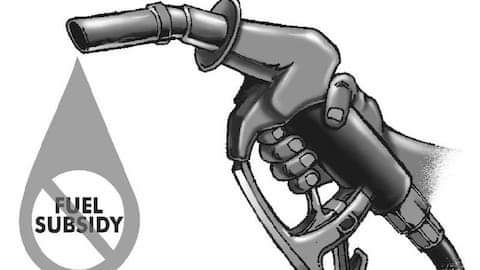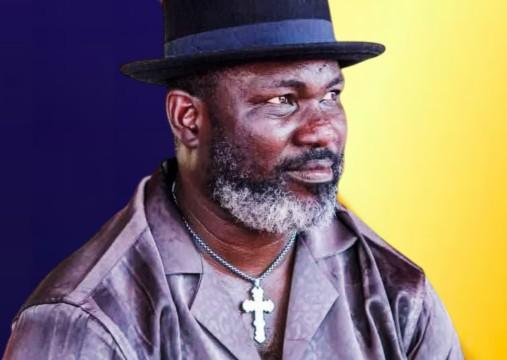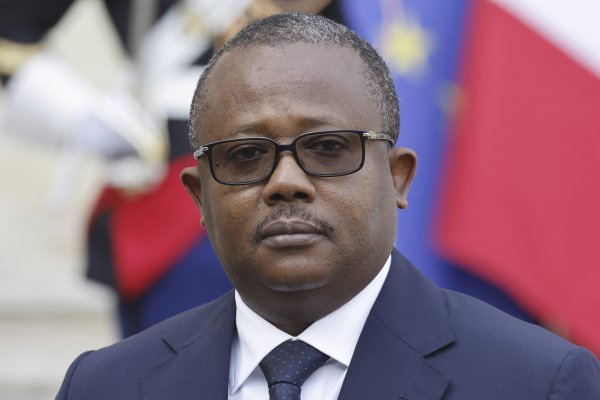FUEL SUBSIDY: The Gains and Losses By Abai Francis

On May 29, 2023, Nigerians awoke to the reality of a long awaited verdict on the lingering issue of fuel subsidy, as the newly sworn-in democratic elected President Bola Ahmed Tinubu (BAT) of the All Progressives Congress (APC), immediately on assuming office, hammered the gavel by pronouncing the death of fuel subsidy, in a decision that will not go down, as usual, without some form of opposition.
The problem of removal of fuel subsidy in Nigeria has always been a political one. In fact, politics rules everything in Nigeria leading to majority of Nigerians finding it difficult to draw a line between business and politics. This is why every attempt at its removal by any presiding government has always been rebuffed or met with stiff opposition, including the action of strikes by labour unions. Recall that in 2012, former president Goodluck Ebele Jonathan (GEJ) of the People's Democratic Party, PDP, attempted to remove fuel subsidy, leading to one of the biggest protests in the history of the country, the 'Occupy Nigeria' protest.
Historically, according to the International Center for Tax and Development, ICTD, fuel subsidy was "first introduced in Nigeria in the 1970s as a response to the oil price shock in 1973." It went on to explain that "Subsidies exist because the government fixes the price of gasoline for consumers below the international price and uses government resources to pay for the difference."
Still on how petrol subsidy emanated, according to a Professor of Economics and the former Chair of the Department of Business & Economics, Steve Onyeiwu, in an interview with TheConversation published November 4, 2021, he disclosed that "Fuel subsidies became institutionalised in 1977, following the promulgation of the Price Control Act which made it illegal for some products (including petrol) to be sold above the regulated price. This law was introduced by the General Olusegun Obasanjo regime in order to cushion the effects of the global 'Great Inflation' era of the 1970s, caused by a world-wide increase in energy prices."
The gains of fuel subsidy included the original intention to cushion the effects of inflation on citizens so as to not only make the product affordable, but improve on the standard of living. Bear in mind that transportation is at the center of growth of any economy and welfare of citizens, a role that petrol plays a vital role in. By it controlling the price of petrol through the introduction of an official rate, the government was also indirectly reducing the cost of consumable goods via low cost of transport.
It is also expected that subsidy of petrol would in the long term lead to high economic activities with more investments, which would reduce unemployment and poverty. Moreover, citizens would also feel directly the positive impact of the dividends of good governance as they are direct beneficiaries of the scheme.
But while the gains of fuel subsidy as an economic palliative was to ease the plights of citizens, it has nonetheless resulted in huge losses for the country as unpatriotic citizens have exploited the loopholes existing in the scheme. Moreover, argument against its sustenance has it that the scheme benefits the rich more than the poor.
On the losses of fuel subsidy, according to Abiola Soremekun on 'The Dynamics of Fuel Subsidy in Nigeria', published on TheGuardianNigeria on 27 March 2023, said that "For one, they [fuel subsidies] have led to increased corruption and mismanagement due to weak oversight mechanisms, with some individuals and companies taking advantage of the system to make illegal profits. In addition, the government spends a significant amount of money on petroleum subsidies, leading to increased public debt. In some cases, the cost of subsidies can exceed the revenue earned from the sale of crude oil, Nigeria’s main export.
"Furthermore, due to the price differences between Nigeria and neighboring countries and the inefficiencies in the distribution and supply chain, petroleum products are often smuggled out of the country, leading to frequent shortages and long queues at petrol stations. Finally, subsidy prices encouraged the overconsumption of petroleum products, leading to increased air pollution and greenhouse gas emissions, discouraging investment in the domestic refining industry and alternative energy sources."
On the cost of petrol subsidy to the country, looking at the figures expended so far, in the year 2022 the Nigerian National Petroleum Company Limited (NNPCL) disclosed that the country is spending over N400 billion on a monthly basis on petroleum subsidy, and that it would spend N3 trillion on subsidies annually. As far back between 2006 and 2018, the country spent about N10 trillion (or US$24.5 billion) on petroleum subsidies, while between 2019 and 2020, it spent about N3 trillion (US$7 billion). The cost of subsidy just keeps escalating each year.
Recall also that the Washington-based lender, the International Monetary Fund (IMF), in a report titled ‘IMF Executive Board Concludes 2022 Article IV Consultation with Nigeria’ urged the Nigerian government to remove fuel subsidies by mid-2023, and highlighted the need for bold fiscal reforms to create needed policy space, put public debt on sound footing, and reduce vulnerabilities, as petrol subsidy is a huge contributory factor to revenue loss.
The truth is that fuel subsidy can no longer be sustained in reality of the present state of the economy. But as the government takes the bold step to end fuel subsidy, it should also be courageous to reduce the high cost associated with governance. It should not only focus its energies on taking away the only thing that citizens directly benefit from the government, it should also look at the extravagant spendings, in the name of governance, by the political class. Everyone should make sacrifices, not only the masses.
Image Credit: Clacified



